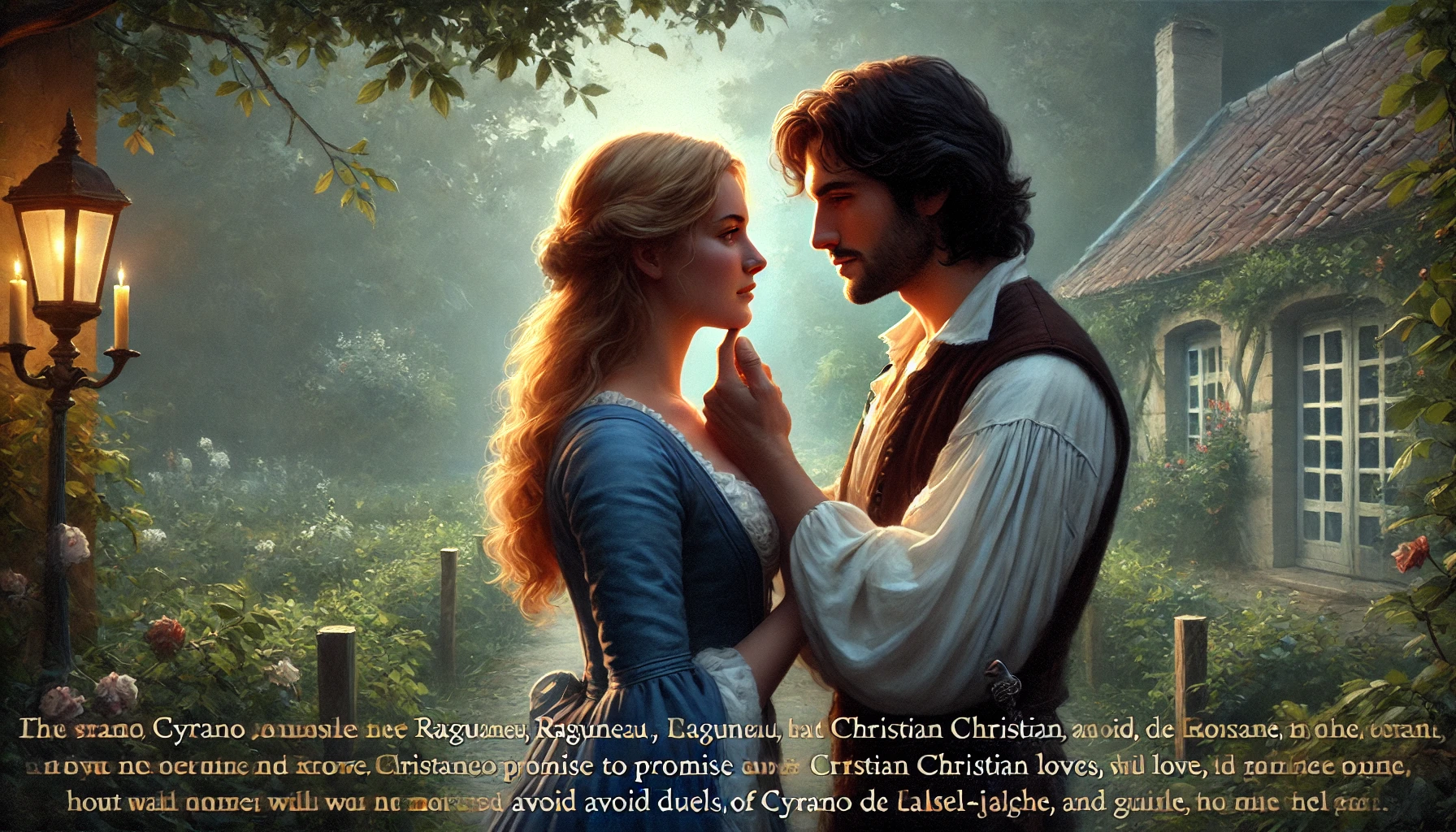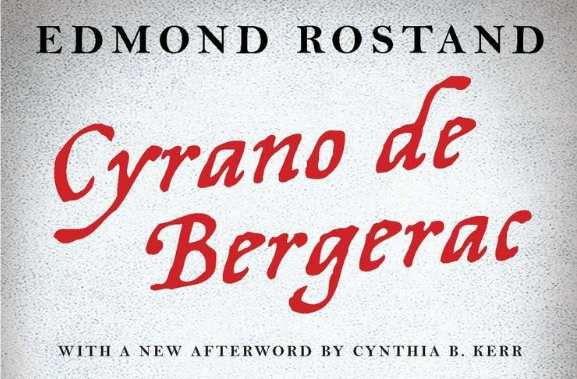Scene 2. VII.
byScene 2. VII. offers a powerful depiction of the themes of love, honor, and self-sacrifice, as Cyrano and Roxane share a poignant and intimate conversation. Roxane, deeply moved by Cyrano’s courage and unwavering loyalty, expresses her admiration for him. She asks him to promise that Christian, the man she loves, will not engage in any duels, fearing for his safety. Cyrano, though secretly in love with her, agrees to her request, showcasing his selflessness and his commitment to her happiness, even at the expense of his own emotions. His willingness to make this promise, despite his feelings, demonstrates his deep respect for Roxane and his desire to protect her, even from afar.
As Roxane departs, Cyrano is left to reflect on the complexity of his emotions. His solitude is interrupted by the arrival of Ragueneau and a group of others, including Carbon de Castel-Jaloux and De Guiche, who bring news of Cyrano’s growing fame following his recent exploits. This newfound recognition is both a blessing and a burden for Cyrano. While the praise and admiration from others are flattering, Cyrano remains uncomfortable with the attention. His focus is still on the promise he made to Roxane, and he is uninterested in the accolades and honors that others believe he deserves. His modesty and reluctance to embrace his newfound fame are evident as he downplays his role in the recent events that have made him a hero in the eyes of many. This reveals Cyrano’s inner conflict—while he is being hailed for his bravery and talent, his true desires lie in staying true to his principles and avoiding the trappings of societal expectations.
The arrival of Carbon de Castel-Jaloux and his cadets further shifts the tone of the chapter, as they celebrate the fearless spirit of the Gascons. The camaraderie between Cyrano and the cadets highlights their shared pride in their heritage, martial prowess, and the bond they share as soldiers. Their lively energy contrasts with Cyrano’s more introspective nature, as he remains focused on the promise he made to Roxane. The cadets’ admiration for Cyrano’s bravery and wit creates a sense of pride in the group, emphasizing the theme of loyalty and honor that is central to the narrative. As they all share in the celebration, Cyrano’s true character shines through. His ability to balance his personal feelings with his sense of duty makes him an admirable figure, both to his comrades and the audience. Despite the attention he is receiving, Cyrano’s actions continue to be driven by his personal code of honor, not the need for external validation.
The entrance of De Guiche brings a new layer of tension to the scene, as he arrives with commendations from the Marshal of Gassion. While the praise is meant to elevate Cyrano’s status, Cyrano’s reaction reveals his inner conflict. He refuses to align himself with De Guiche, choosing instead to remain true to his values and his desire for integrity over fame. His rejection of the recognition and the glory that comes with it highlights his commitment to personal honor, regardless of the external rewards. Cyrano’s decision to resist De Guiche’s advances emphasizes his refusal to compromise his principles for the sake of ambition or success. This act of defiance not only reinforces Cyrano’s character as a man of unyielding pride but also underscores the central themes of the play: honor, integrity, and the complexities of human emotions.
The culmination of the chapter occurs when Cyrano presents the Cadets of Gascony to De Guiche, offering a poetic and vibrant description of their bravery and spirit. This moment serves as a powerful expression of Cyrano’s deep connection to his comrades and his pride in their shared identity. The Gascons are portrayed not just as soldiers, but as individuals driven by a strong sense of loyalty, courage, and independence. Cyrano’s words capture the essence of their collective spirit, emphasizing their martial prowess and boisterous energy. The Cadets’ representation as a cohesive group stands in stark contrast to the individual pursuits of personal ambition, highlighting the themes of collective identity, unity, and loyalty that run throughout the play. This presentation also serves as a direct challenge to De Guiche, who represents the more traditional notions of nobility and power, showing that Cyrano and his comrades value honor and bravery above societal rank.
As the chapter draws to a close, the stage is set for the next phase of the narrative, where Cyrano’s internal struggles and external conflicts will continue to unfold. The themes of love, honor, and self-sacrifice remain central to the story, as Cyrano navigates the complexities of his relationships with Roxane, Christian, and his comrades. Cyrano’s ongoing battle to balance his personal desires with his sense of duty will continue to drive the narrative forward, as the play delves deeper into the emotional and moral dilemmas faced by the characters. The chapter also sets up the continued tension between Cyrano’s ideals and the expectations of those around him, highlighting the sacrifice that comes with staying true to one’s beliefs in a world that often values conformity over individuality.
Through this chapter, Cyrano’s character is further developed, revealing his unwavering commitment to his principles and his reluctance to embrace the recognition that comes with fame. His interactions with De Guiche, Carbon, and the cadets demonstrate his deep sense of pride in his comrades and their shared identity, while also highlighting the internal conflicts that come with maintaining one’s honor in a world that often misunderstands or challenges those ideals. The balance between personal sacrifice and honor, between self-expression and societal expectations, continues to shape Cyrano’s journey, making him a complex and compelling figure whose struggles resonate with universal themes of love, identity, and the pursuit of personal integrity.


